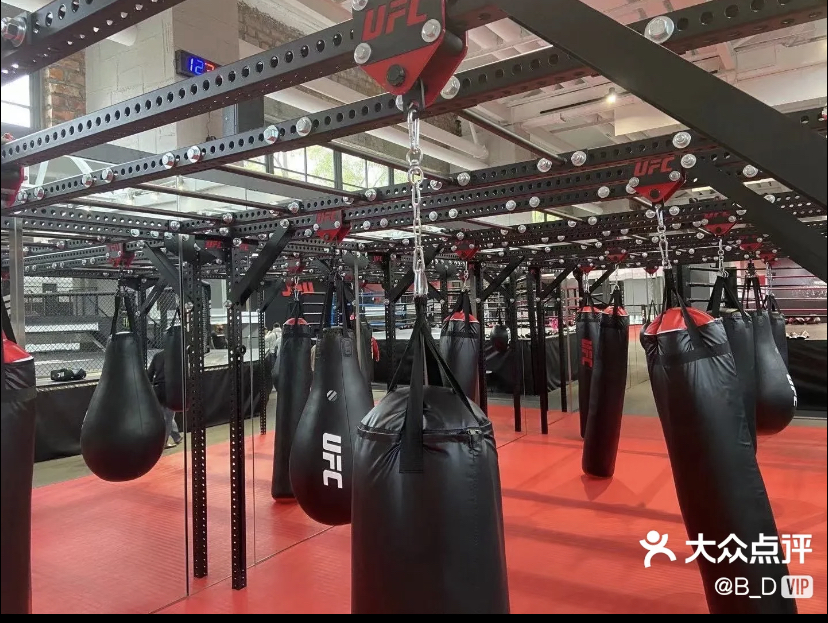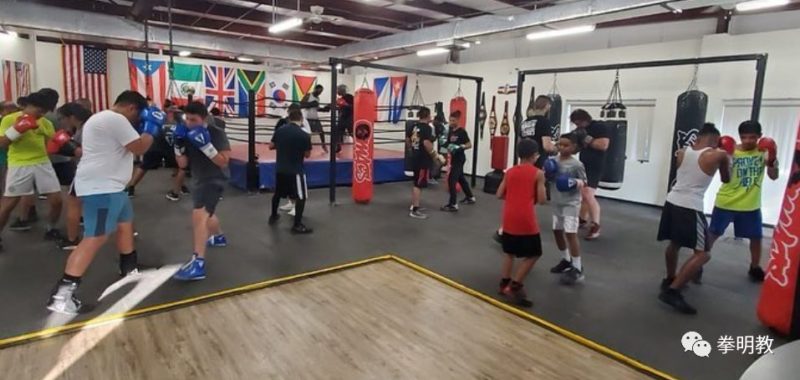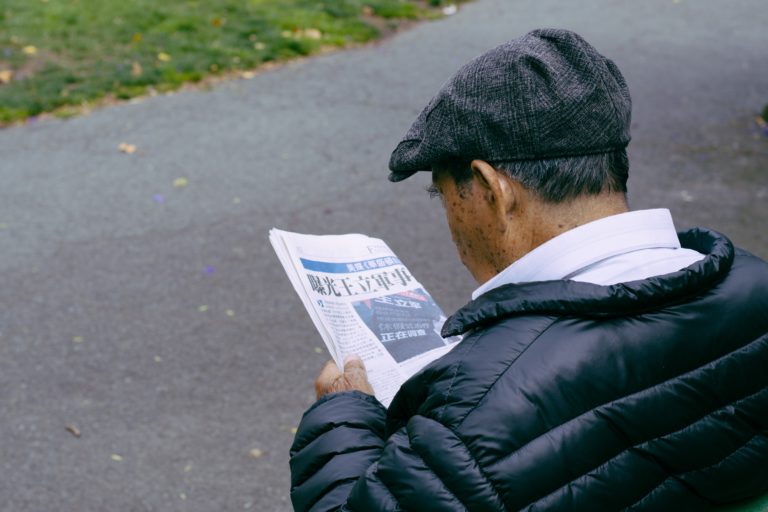With the changes in Chinese fitness consumer groups and improved spending power, increasingly more people choose niche sports such as boxing to satisfy their diverse fitness needs. Although there is still a big gap in the recognition and participation of boxing compared with western countries, thanks to large population base in China, boxing market in China is still promising. The size of the Chinese boxing market was ¥322 million in 2017 and is predicted to reach ¥856 million in 2022.
Also check out our analysis on China’s martial arts market
Especially in tier 1 cities like Beijing and Shanghai, the number of boxing gyms is increasing rapidly, and people who do boxing in these cities have high willingness-to-pay for this sport. For example, in the annual consumption of Beijing fitness boxing members is more than 20,000 yuan.
Diversified development of the Chinese boxing market: Four types of boxing gyms
Type 1: Urban boxing gyms
Target customer group: White Collars who regard boxing as a hobby for stress reduction and fitness. These consumers have considerable spending power and may join group boxing classes for the social aspect.
Features of the boxing gym: The technical expertise of these boxing gyms in China are relatively low. The exercise intensity is relatively low, as the main purpose of training is stress reduction and exercise, with the main reference standard being not to affect the work and life of white-collar workers. However, the environment, social atmosphere and service quality of these boxing gyms are at the leading level in the industry.
Locations: Such boxing gyms are often in tier 1 cities and are located in business districts or high-end residential areas.
Prices: Due to the high rent and various operating costs, the fees are also high, annual memberships range from 5,000 RMB to 12,000 RMB.
Coaches: The composition of the coach is relatively free. They can be retired professional boxers or advanced fighters..
Examples: Ringside Boxing and Aboro Academy in Shanghai

Source: DianPing (大众点评), Aboro Academy boxing gym in China
Type 2: Professional boxing gyms
Target customer group: People who are interested in professional boxing, and want to become a professional boxer, or a boxing coach in the future.
Features of the boxing gym: The purpose of the professional boxing gym is to train professional boxers, even boxing champions, to participate in competitions. These gym have a rigorous training system, with high training intensity, and strict requirements for boxers. Some boxing gyms even provide board and lodging so that full-time or part-time athletes can devote themselves to boxing training.
Locations: This kind of boxing gym does not have very high environmental requirements, and due to cost-saving reasons, most of the locations are selected in relatively remote areas.
Prices: In addition to the tuition fees charged by the students, the boxing gym also needs to share part of the commission from the students’ appearance fees.
Coaches: The coaches are often experienced and have very high boxing attainments and accomplishments. They need to have a certain understanding of the professional boxing market in China. They can not only provide technical support to boxers, but also provide psychological counseling and tactical support to fighters, and some even provide life guidance.
Examples: Dingyuan (定园) in Suzhou, Wanding (万鼎) in Xian, Zhongquanwen (众拳威) in Yunnan
Type 3: Mix of Type 1 and 2
Target customer group: Both the White Collars and professional boxers.
Features of the boxing gym: The training system of this kind of boxing gym is divided into professional boxer training system and white-collar boxing training system. Taking into account the professional needs of professional boxing and the needs of the social commercial market. The sales of courses for teaching white-collar boxing can enable professional boxers to obtain corresponding income; at the same time, professional boxers can attract more Chinese to purchase courses after they have achieved results. Thus forming a virtuous circle.
Locations: The location of boxing gyms is often chosen in middle-consumption areas.
Coaches: The senior boxing chief coach will lead professional boxers to establish a coaching team. It is necessary for the chief coach and the gym owner, as well as the boxers themselves, to make a scientific assessment between professional matches and economic interests to find the best balance point and to prevent the ceiling of their professional boxing career from appearing prematurely.
Examples: M23 in Beijing, Yingtuteng (鹰图腾) in Dalian, Hook in Shanghai, Wangzhe (王者) in Xian, Mingrentang (名人堂) in Yunnan

Source: DianPing (大众点评), Mingrentang (名人堂) in Yunnan

Source: WeChat official account Quanmingjiao (拳明教), Chinese students practice boxing
Boxing is still a niche sport in China
According to the China Boxing Association, authorized boxing gyms are mainly operated by boxing clubs or a couple of professional boxers. Although they have experienced coaches, their target customer are more likely to be people who want to become professional boxers and the courses they offer are not suitable for casual athletes in terms of difficulty and training volume.
As boxing gets more popular, standard gyms are fighting for their share in the market. 2019-2020 White Paper on the Development of China’s Gym Market published by Deloitte indicated that the top gyms such as PHYSICAL, INGYM, etc. equip themselves with boxing facilities to better satisfy customers’diverse fitness needs. But the boxing coaches in fitness gym are not exclusive to boxing, they also teach other kinds of exercise and are reported to be less professional by gym members.
In addition, the area of smaller gyms like for private training studio is usually between 100-200 square meters. They don’t have enough space to build a high-quality boxing training ring. However, for targeting casual athletes, or those just starting out, offering additional boxing classes to a standard gym is one way to retain clients while offering something extra.

Source: Baidu index, Search index for boxing and running in the Chinese internet. As boxing is not only a sport that more and more Chinese people practice, it’s also a form of entertainment, Baidu search peaks correlate with professional matches.
Why boxing is getting popular in China, especially among women
The growth of female boxers in China is estimated as one of the main driving forces for the market. Figures from Tmall show that the sales of boxing gloves for women increased by 75 percent between 2017 and 2018. A report released by the retail firm Suning shows that the annual purchases of boxing gloves by female shoppers skyrocketed 354 percent compared to 2018. In Beijing, the proportion of female boxers is 50%, and is increasing.The next question is what attracts so many Chinese women to boxing?
Boxing is an efficient method of weight loss
Although the mainstream aesthetic of Chinese society has become more diversified, “pale”, “young”, and “thin” might still be China’s beauty standards for women. In daxue consulting’s survey on fitness habits in China, 76.2% of the female participants exercising for the purpose of losing weight. In our survey on health perceptions in China, 74.8% of the women believe they need to lose weight because of aesthetic considerations.
As boxing is a highly efficient sport for losing weight, many Chinese women are finding the traditionally masculine sport is the solution to their body goals. Huang Wensi, a professional Chinese boxer who won the Asia Female Continental Super Flyweight Championship gold belt in 2018, says boxing is “the best fat-burning exercise for office workers”. Data shows that about 45 minutes of boxing can consume 500 to 800 calories. “Focusing specifically on punching, ducking and foot movement, these exercises will improve reaction times and coordination as well as help people to tone up,” the 31-year-old says, adding that “punching really sculpts your arms and shoulders”.
Also, compared with other aerobic exercises like running or rope skipping, boxing is much more intellectually stimulating. Although many casual boxers never enter a real match, training with coaches still causes athletes to switch up their routine, hasten their reflexes, and especially at first, constantly learn new moves.
Increased media promotion for Chinese boxing: Celebrity endorsements
Zou Shiming, the most successful boxers in China who won both the Olympic medals and World Amateur Boxing Championships three times, however, is widely known for his family’s participation in TV shows like “Super Mom” (妈妈是超人) and“ Where are we going, daddy” (爸爸去哪儿). These shows provide an opportunity for him to show his daily life as a professional boxer and share the benefits of boxing to the public, increasing the audience’s goodwill towards boxing greatly.

Source: Baidu, Professional Boxer Zou Shiming joined Where Are We Going, Daddy with his son
If Zou Shiming’s participation in TV shows is from a professional perspective to promote boxing, Xie Na who practiced boxing to lose weight and better protect her daughters makes boxing become further popularized.
Xie Na, one of the most famous TV hosts in China, showed her figure on social media after three months of working out, including boxing. One reason Xie Na says she chose boxing was to lose weight.
The other reason for this was she wanted to better protect her babies. “Once I knelt and picked up the baby. I didn’t expect that I suddenly lost my strength and fell backwards, so I tightly guarded the baby in front and fell to the ground”, said by Xie Na during a TV show. To prevent such a horrible thing happening again, Xie Na started boxing. Chinese netizens were moved by her love for her children, and were also astonished by what a huge difference that boxing could bring to one’s figure in a such short period.

Source: IQIYI, Xie Na practicing boxing with her coach
Boxing brings a sense of security to Chinese women
“Compared to men, Chinese women feel more insecure. After all, this is a patriarchal society. Most resources, culture, and political rights are in the hands of men. Men occupy most of the social resources, so compared to women, men will feel more secure.” said Li Yinhe, a gender scholar widely recognized by Chinese.
One way women achieve security is by having a stronger body. A considerable number of Chinese women choose to achieve this through boxing. Boxing can help improve coordination of the body and shorten the reaction time of the brain. In all, it can enhance the explosive power of the human body. All these make Chinese women feel more secure in the face dangerous situations.
In addition, more women joining boxing is a sign which shows the development of gender equality in China. Boxing was once regarded as a sport only men could do. But nowadays, Chinese females not only have the chance to try and join this sport without any judgement, but also bring a huge influence on Chinese boxing market, letting their needs being heard and seriously considered.
Professional boxing in China
Both competitive and fitness boxing in China are niche. For Chinese competitive boxing, it is impressive to see professional boxing matches keep innovating the way the games are presented and constantly regulate the rules of the games. The KOK (King of Kings) professional boxing match is a perfect example. It is close match between the hot-blooded boxing game and the competitions in e-sports. KOK combines boxing with e-sports by cooperating with the largest Chinese e-sports platform, Huya.

Source: Datayes, KOK professional boxing match
Takeaways for the boxing market in China:
- China’s boxing consumers are mainly located in high-tier cities.
- Most novice boxers start in their local gym, then may join a boxing gym later. Additionally, there are professional facilities for training professional athletes. Many of these athletes become coaches are more casual facilities later in life.
- Women are a growing target consumer base of boxing in China. Many women do the sport to lose weight, and female celebrities have boosted the public’s interest in the sport by showing their health progress from boxing.
- China’s boxing market is growing fast, and is due to expand into lower tier cities.
Learn something new? Stay updated on the Chinese market by following our WeChat, scan the QR code below, or subscribe to our newsletter

See our survey on health perceptions in China
Listen to over 100 China entrepreneur stories on China Paradigms, the China business podcast
Listen to China Paradigm on Apple Podcast






